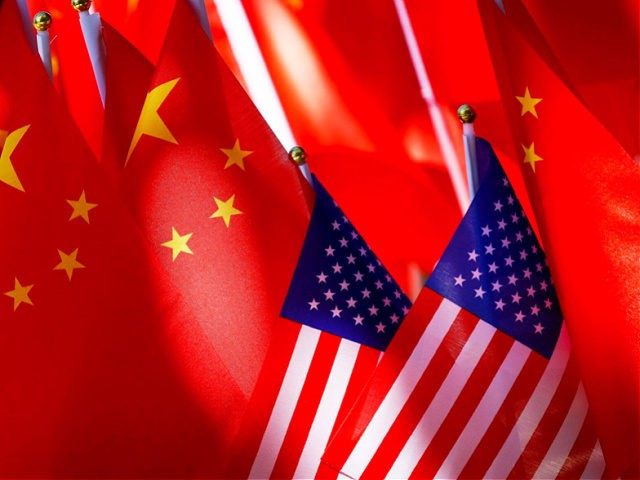A report published last week by the National Association of Scholars (NAS) warns that China’s state-run Confucius Institutes — a program for spreading Chinese Communist political influence on American campuses, disguised as harmless lessons in traditional Chinese culture and language — are making a comeback by “rebranding” and reopening under new names.
The report, titled After Confucius Institutes: China’s Enduring Influence on American Higher Education, hailed the investigation and shutdown of 104 Confucius Institutes (CI) at American universities over the past four years as a significant achievement in reducing the Chinese Communist Party’s influence in the United States.
The authors warned, however, that the demise of “one of China’s most strategic beachheads in American higher education” has not “deterred the Chinese government from seeking alternative means of influencing American colleges and universities.”
One of China’s most successful tactics was simply rebranding and relaunching its Confucius Institute program under different names at no less than 28 institutions of higher learning in the United States. At least five institutions kept their CI programs running without any real interruptions or changes. In some cases, the successor programs were launched within days of the CI shutting down.
“Institutions have entered new sister university agreements with Chinese universities, established ‘new’ centers closely modeled on defunct Confucius Institutes, and even continued to receive funding from the same Chinese government agencies that funded the Confucius Institutes,” the NAS report said.
Some of the “subterfuge” described in the report was not subtle. The Chinese state agency that funds the CI program simply changed its name, created a front organization with the not-very-distracting name “Chinese International Education Foundation,” and kept the money flowing.
Many of the same people who worked for the Confucius Institutes migrated to its replacement organizations, which continued to use the same textbooks and other educational resources.

Undergraduate student Moe Lewis, left, shows her watercolor painting of peony leaves at a traditional Chinese painting class at the Confucius Institute at George Mason University in Fairfax, Virginia, on May 2, 2018. U.S. lawmakers are pushing for tighter regulation or even closure of the more than a hundred Chinese Confucius Institutes set up on campuses across America. (Matthew Pennington/AP)
NAS argued that many American universities swallowed these evasive tactics without asking too many questions because they want the CI program and its funding.
As many prior observers have complained, the disclosure requirements for much of that Chinese funding are “spotty and unreliable.” The report highlighted a few of those murky financial relationships, which sometimes funnel the money through third parties to avoid U.S. transparency laws.
After Confucius Institutes advised the U.S. government to start playing hardball against the Chinese Communist Party’s persistent efforts to infiltrate American education, such as taxing “gifts and contracts” from China or withholding U.S. federal funding from universities that exceed clearly-established limits on Chinese funding.
The report also called for limits on American university partnerships with Chinese institutions that are “involved in China’s military-civil fusion,” investigating “potential visa abuse” by the successor programs to CI, and eliminating the loopholes that allow such programs to evade transparency requirements.
“The Chinese government has executed an end-run of U.S. public policy. In the wake of laws targeting Confucius Institutes, the Chinese government has deftly reorganized its program,” warned NAS program research associate and report co-author Ian Oxnevad.
“In military terms, this would be called an outflanking maneuver. The Chinese government is betting that if it takes away the name, Confucius Institute, and tweaks the structure of a program, no one will realize that Chinese government influence remains alive and well in American higher education,” said senior NAS research fellow and report co-author Rachelle Peterson.
University of California Riverside professor of Chinese language studies Perry Link told Voice of America News (VOA) on Monday he was “shocked” by the NAS report and how quickly the CI program recovered from what looked like a highly successful purge.
“I didn’t expect the rate of closures to be so high. Second, they still exist in another way with another name. I think this is expected. I just didn’t expect it to happen so soon,” he said.
Link pointed out that CI and its replacement programs can exert considerable political influence over American universities because the Chinese government makes its political priorities very clear and is well-known for using economic clout to enforce its speech codes on foreign entities.
“If you are in the Confucius Institute and create some programs with CCP [Chinese Communist Party] money, would you host a memorial event for the Tiananmen Square Massacre? Of course not. Are there written rules that stop you? No. Did someone above tell you not to? No. It’s self-censorship, it’s psychological,” he said.

COMMENTS
Please let us know if you're having issues with commenting.